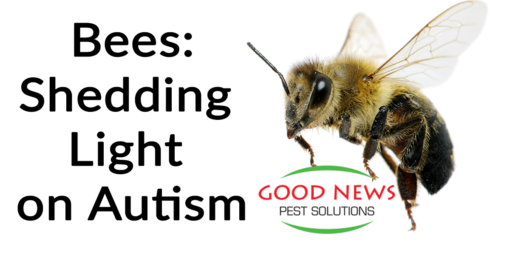
Anti-Social Bees: Shedding Light on Autism
Everyone is familiar with the stereotypical image of a bee. They fly around, flower to flower, pollinating, then taking pollen back to the hive where it’s turned into honey. But if you could look closer inside the hive, where few humans dare to go, you’d see a few bees that don’t fit the traditional profile. Instead of flying around, gathering nectar and pollen or defending their queen when attacked, these bees sit in an almost adolescent stupor. Moving very little, hanging out together, not contributing much, if at all, to the hive community.
Anti-Social Behavior in Bees
No, these aren’t teenage goth bees. And while scientists have noticed this unexplained behavior – and its apparent acceptance in bee colonies - it never quite made sense. But researchers at the University of Illinois recently made a break-thru and the implications of their research could be even more widespread. While testing hundreds of bees from genetically distinct bee colonies, they discovered several links between the socially unresponsive bees across the different groups. When they took things one step further, a statistical analysis showed that these bees may have overlapping genetic profiles with humans on the autism spectrum. To be sure, bees and people are vastly different creatures, so the scientists were careful to point out that any similarities would have to be explored further before conclusions can be drawn.
Implications for Autism
The study leader explains: “…our findings indicate that there appear to be common building blocks for social responsiveness, and given that honey bees live in complex societies and respond to many different social stimuli, it could be illuminating to find out how the genes we identified function in the bee social context. This might provide ideas for roles in other contexts, including autism.” Considering we all have the same Creator, it isn’t surprising that some traits could be shared across species. Other entomologists not associated with the study were quick to point out its limitations, but recognize that having a similar set of genetic models to study could definitely help improve our understanding of both groups. The researchers from UI have committed to furthering their studies to see if indeed studying bees that are unresponsive to their colony’s social stimuli could lead to a greater understanding of how autism works in humans on a genetic and possibly even social level. Here at Good News Pest Solutions, we love sharing the interesting things we discover about insects. And we’re always excited to learn more things. That’s why our technicians are the best in the business, because they’re all passionate about knowing everything they can about our business. And while we're all fond of bees, if you’re having a problem with a real pest inside or outside your house, just give us a call! We’d be happy to send one of those top technicians to your house. We only use 100% organic, all-natural pest control solutions that are safe for the whole family. Whether you’re in Lakewood Ranch or Punta Gorda, let us prove to you what’s made us the leading pest solution provider on the Gulf Coast of Florida for nearly 30 years!
« Back to BlogProudly Serving
Sun City Center, Ruskin, Palmetto, Parrish, Ellenton, Bradenton, Anna Maria, Holmes Beach, Bradenton Beach, Longboat Key, Lakewood Ranch, University Park, Myakka City, Sarasota, Siesta Key, Osprey, Nokomis, Casey Key, Venice, Englewood, North Port, Port Charlotte, Punta Gorda, Arcadia
Things You Can Do
Pay Your Bill Online
Leave Us a Review
Request a Free* Termite Inspection
Stop Mosquito Bites
Get Rid of Rodents
Get a Termite Damage Warranty
Get Pest Control for Your Attic
Get Pest Control for Your Business Request Prayer
Corporate Address
1080 Enterprise Court, Ste A
North Venice, FL 34275
Call Now: (941) 412-9610
Text: (941) 412-9610
Fax: (941) 412-0080
